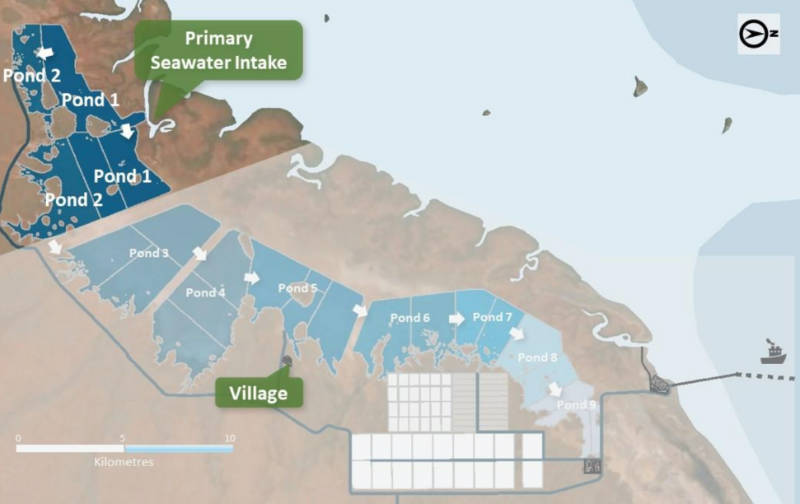You might be interested in
Mining
Ground Breakers: The next major salt producer in WA (yeah, you read that right) is chasing over $300m
Mining
Monsters of Rock: St Barbara shareholders vote up Genesis bid in Leonora ménage à trois
Mining
Mining
BCI is well on the way towards becoming a salt and potash producer with the start of main construction at its Mardie project on Western Australia’s Pilbara coast.
This follows the company securing the Mining Leases and Commonwealth Government environmental approvals as well as all secondary approvals such as the Mining Proposal, Part V Works Approval and necessary consents under Section 18 of the Aboriginal Heritage Act 1972.
BCI Minerals’ (ASX:BCI) $1.2bn Mardie project is the first major salt development in WA in more than 20 years and one of the largest in the world, with expected production of 5.35Mtpa of sodium chloride and 140,000tpa of sulphate of potash over a life of 60 years.
“This is a historic milestone for BCI and the culmination of four years’ work by our dedicated team,” managing director Alwyn Vorster said.
“Mardie will ultimately include a 100sqkm evaporation pond and crystalliser system, two processing plants and a new export facility which will produce 5.35Mtpa of salt and 140ktpa of sulphate of potash fertiliser, driven sustainably by inexhaustible seawater and 99% natural sun and wind energy.
“We aim to complete construction of Pond 1 and fill it with seawater within six months which will represent the commencement of production and keep us on track to achieve first salt sales in late 2024.”

Initial main construction work will focus on completion of the seawater intake station and Pond 0, followed by Pond 1, Pond 2 and the Mardie village, with a roads package to commence in March.
The company expects construction of Pond 1 and the seawater intake station to be completed in the third quarter of 2022 followed by a three week period to fill the pond.
Completion and filling of Pond 2 will closely follow with gravity driving the inflow of seawater.
BCI expects that by the fourth quarter of 2024, some 40 gigalitres of seawater will have been pumped into Pond 1 and gravity fed into Pond 2 with the combined ponds covering an area of 24sqkm.
From that point, sequential filling of Ponds 3 to 9 will commence with all ponds expected to be full by the fourth quarter of 2023 and the first salt harvest and sales anticipated in late 2024.
Construction of the 2.4km long jetty at Captain Preston West, which is required for loading ships, will be carried out by McConnell Dowell over a 24 month period.
Mardie is expected to generate annual earnings before interest, taxes, depreciation, and amortisation (EBITDA) of $260m thanks to bottom quartile operating costs of about $21.50/t of salt and $337/t of potash.
BCI was granted the Mining Leases M08/525, M08/526 and M08/527 over the project earlier this month by the Western Australia Department of Mines, Industry, Regulation and Safety for an initial term of 21 years to 2 February 2043, with further extensions of term available subject to Ministerial approval.
It followed the mid-January award issue of the environmental approval by the Commonwealth Government’s Department of Water, Agriculture and Environment.
This aligns with and supports the WA environmental approval that it received late last year.
It also highlights federal support for the project that had previously included the provision of $600m in loan facilities and the award of Major Project status.
The company is currently seeking further environmental assessment, secondary approvals, and an additional Mining Lease (M08/539) application over the next 12-months that will allow for an optimisation of the Mardie project layout.
This article was developed in collaboration with BCI Minerals, a Stockhead advertiser at the time of publishing.
This article does not constitute financial product advice. You should consider obtaining independent advice before making any financial decisions.